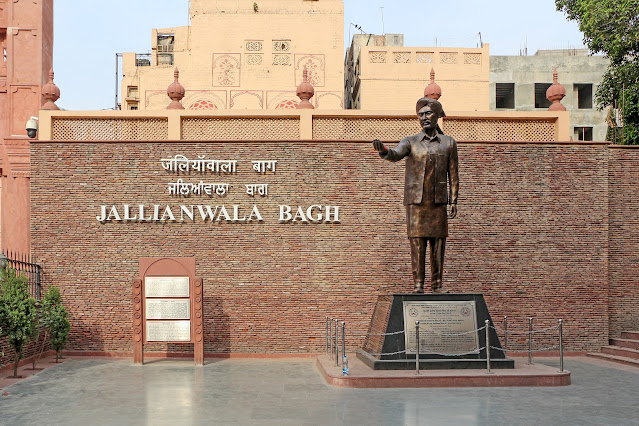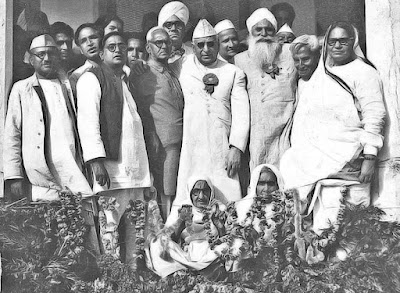"Jallianwala Bagh: A Painful Reminder of India's Struggle for Freedom"

Jallianwala Bagh is a public garden located in the city of Amritsar, in the Indian state of Punjab. It is infamous for the brutal massacre that took place there on April 13, 1919, when British troops opened fire on a peaceful gathering of unarmed civilians. The incident is one of the darkest moments in India's struggle for independence and has left a deep scar on the country's collective memory.

However, the British authorities viewed the gathering as a threat and decided to use force to disperse the crowd. Led by General Reginald Dyer, British troops surrounded the garden and without any warning, opened fire on the unarmed civilians. The shooting continued for about 10 to 15 minutes, resulting in the deaths of hundreds of people and injuring many more. The wounded were left to die as the British authorities had imposed a curfew in the area and prevented anyone from leaving.

Today, Jallianwala Bagh is a national monument that stands as a reminder of the sacrifices made by those who fought for India's freedom. The garden has been preserved as a memorial to the victims of the massacre, and visitors can see the bullet marks on the walls and the well where many people jumped to escape the firing. The site attracts visitors from all over the world who come to pay their respects to the brave men and women who lost their lives in the struggle for independence.
The Jallianwala Bagh massacre is remembered as one of the most tragic incidents in India's history. It was a watershed moment that marked a turning point in India's struggle for independence and galvanized the Indian people to fight for their rights and freedoms.

The Jallianwala Bagh massacre remains a sensitive topic in India-Pakistan relations, as many of the victims were Muslims who had gathered to celebrate the festival of Baisakhi. The incident is seen as a symbol of the oppression and violence that were inflicted on the Indian people by the British colonial government, and it has been used as a rallying cry for independence movements around the world.

Jallianwala Bagh is a small park in Amritsar, Punjab, India that holds a significant place in India's struggle for independence. The park is surrounded by high walls on all sides, with only one narrow entrance. On April 13, 1919, a large crowd of unarmed civilians, including men, women, and children, had gathered at Jallianwala Bagh to peacefully protest against the British colonial government's repressive policies.
The protest was led by local leaders, who called for an end to the British occupation and the release of political prisoners. As the peaceful demonstration was underway, Brigadier General Reginald Dyer, who was in charge of the British forces in Amritsar, ordered his troops to open fire on the unarmed civilians. The troops fired relentlessly, killing and injuring hundreds of people.

The Jallianwala Bagh massacre had a profound impact on India's freedom struggle, and it sparked widespread outrage and condemnation from people around the world. The incident galvanized the Indian people to fight for their rights and freedoms, and it became a rallying cry for India's independence movement.
The massacre at Jallianwala Bagh is widely regarded as one of the darkest chapters in India's history, and it is a painful reminder of the atrocities committed by the British colonial government. The incident has left a lasting impact on India's national consciousness, and it is still remembered with great sadness and reverence by the people of India. Today, Jallianwala Bagh serves as a poignant reminder of the sacrifices made by those who fought for India's freedom, and it stands as a symbol of India's strength and resilience.







Post a Comment